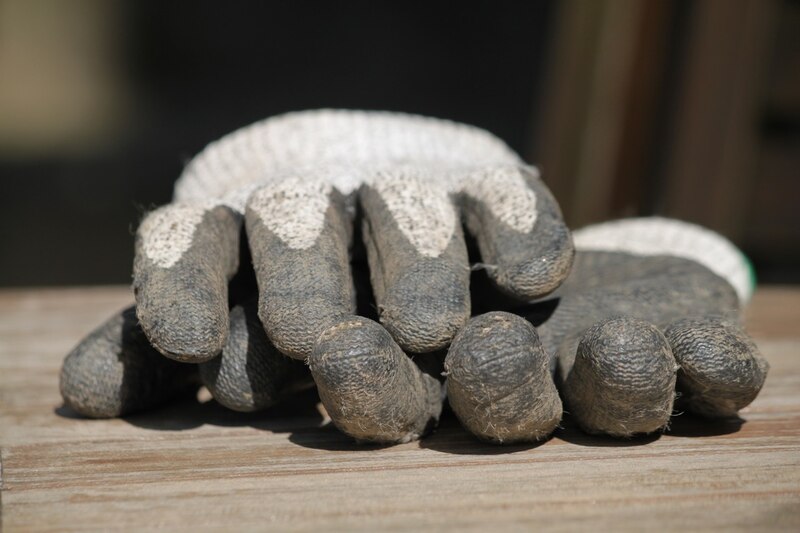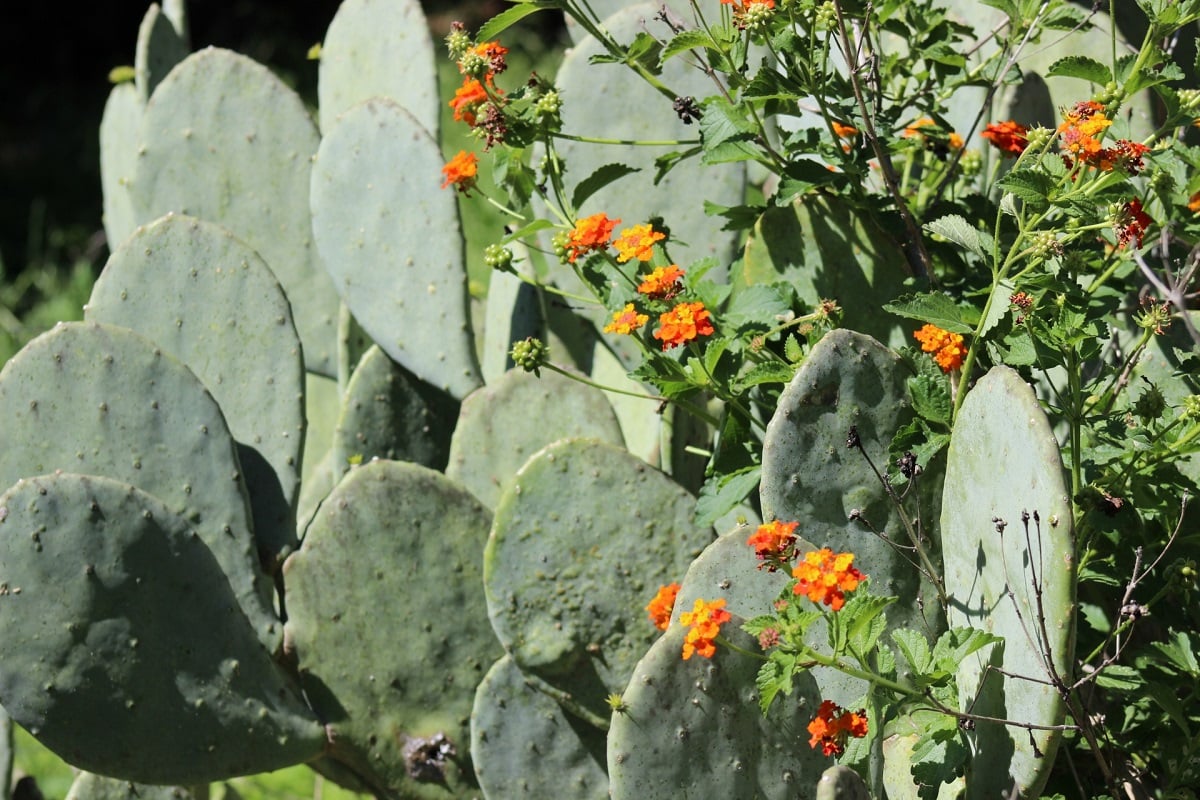
Nearly 118 million Americans count themselves as gardeners, and that means nearly 118 million Americans are susceptible to injuries or illnesses connected with gardening. Before you pull up a single clump of crabgrass in your flowerbed, check out these 10 tips for staying safe in the garden.
Gardening may seem like a safe hobby — and for the most part, it is — but it can lead to injury or illness. For instance, ERs treat more than 400,000 injuries each year related to outdoor garden tools, the U.S. Consumer Product Safety Commission says.
“Just because you might be out relaxing in the garden doesn’t mean you should throw safety precautions to the wind,” says Dr. David Lichtman, an orthopedic surgeon in Fort Worth, Texas. Here are our top 10 gardening safety tips to keep in mind.
1. Check The Ground Below
Before starting your gardening project, it is a good idea to know where you’re digging. Unfortunately, the ground beneath you may not be as safe as it appears. There could be pipelines or cables below.
One way to ensure your safety is by calling 811. No matter how big or small your dig is, it is critical to contact local officials in case there are utility lines or pipelines below the surface in your yard. This allows you to stay safe in the garden and keeps your utilities working properly.
2. Wear Gloves

Garden gloves are one of the best ways to protect yourself when gardening in your yard. Believe it or not, there are many hidden dangers lurking as you work outside. So, when you plan to garden, it’s a good idea to purchase gardening gloves that have a protective rubber coating on them.
Gardening gloves with a rubber coating will help you avoid burns from fertilizers or pesticides and scrapes from sharp objects. They can also protect you from fungi, bacteria, and even poisonous plants in your yard. Gloves can also protect you from tetanus.
3. Perform Warm-Up Exercises
If you plan to spend some time in the garden, it is a good idea to do some warm-up exercises. Gardening can affect your body in the same way that a moderate-intensity workout can. It works various body parts, including the legs, arms, abdomen, and back. You will also burn calories while performing such movements.
So how do you get ready to garden? In the same way an athlete does before any physical activity, you should warm up before digging in the garden. For instance, walk around your garden for a few minutes and do some pre-gardening stretches.
4. Avoid Repetitive Motions
Did you know that prolonged and repetitive motions, such as digging, raking, trimming, pruning, and planting, may strain your muscles? To avoid this, it is ideal to switch up your tasks every 15 minutes and take between-task breaks. Changing your activities throughout gardening can allow you to work different muscle groups, helping to prevent muscle strain.
5. Banish Back Bending
When performing any exercises or strenuous activity, it is critical that you protect your back. Not doing so could cause muscle spasms or a much more serious injury, such as a herniated disk. Constantly bending while performing gardening tasks can create back discomfort. To minimize injury while gardening, experts recommend to hinge at the hip as you bend, not the waist.
In addition, kneeling instead of bending will put less strain on your back if done correctly and may be a better option for activities like weeding. For extra comfort, consider wearing kneepads.
6. Check Your Lifting
As with bending, lifting heavy objects can also cause strain on your back. When lifting objects, especially heavy ones, experts recommend to engage your legs and knees, not your back. When you’re carrying heavy objects, hold them close to your body to reduce strain.
7. Block the Sun

Whether it is hot or cold out, the sun’s powerful rays can burn your skin. To prevent sunburn, experts advise you to apply sunscreen that provides an SPF of at least 15, as well as ultraviolet A and B protection. Put on a wide-brimmed hat to keep the sun off your face, head, ears, and neck.
Remember that 10 a.m. to 4 p.m. during daylight saving time (9 a.m. to 3 p.m. during standard time) is the most hazardous period for UV exposure in the continental U.S. Some of these measures can also help you prevent heat stroke.
8. Watch Out for Pests
After a day of gardening, check your clothes and body for ticks. Pests can latch onto your clothing and burrow into your skin, causing skin irritation, blisters, and disease.
Besides ticks, look out for other pests that could harm you:
You can use insect repellent to keep some of these pests away and prevent insect bites. Additionally, wear protective clothing (long pants and long sleeves), spray the yard with pesticides (or use an Integrated Pest Management approach to keep pests away), and possibly avoid areas where these pests are in your yard.
If there are infestations present, you may want to contact a pest control company.
9. Protect Your Eyes and Airway
Whether you have allergies or not, experts suggest using eye protection and a surgical face mask to protect your eyes and airway from dust, dirt, pollen, and large particles as you garden. Although it may not trigger an asthma attack or cause allergies for everyone, there may be things within your garden that can get in your eyes and nose.
10. Stay Hydrated

Gardening doesn’t seem like it is a very arduous task, but it can take a toll on the body. As a result, it can leave you parched. Ideally, you should start drinking plenty of water before going outside. Whether you’re gardening in warm weather or cooler weather, it is critical to stay hydrated. Not getting enough water in cold weather can cause hypothermia.
As you garden, it is a good practice to keep drinking water, even if you don’t feel thirsty. Sometimes your body may experience dehydration before you start to feel thirsty. Be sure to keep water near you in the garden if you start to feel the effects of dehydration.
FAQs
Yes. Using an integrated pest management approach while gardening will allow you to minimize the use of pesticides, especially when growing crops.
You can use vinegar in the garden for various reasons. One reason to use it is to get rid of weeds effectively.
Yes. It is a good idea to protect both your eyes and ears with safety goggles and ear muffs or ear plugs. Safety goggles will keep dirt, bugs, or other debris out of your eyes, and ear plugs protect your ears from excessively loud noises.
Need Someone to Do Your Dirty Work?
Not everyone has a green thumb. But you may still want a beautiful, thriving garden. If you want to get better at gardening, learn more tips and best practices by accessing one of our lawn mowing guides. For professional quality results without the hassle of doing it yourself, contact one of our lawn care pros today.
Disclaimer: This information is for educational purposes only. Seek professional advice if you have concerns about how to stay safe in the yard.
Additional source: Oklahoma State University
Main Image Credit: Aleksandra Jovovich | Flickr | CC BY 2.0



![10 Best Garden Shears of 2025 [Reviews] gardener pruning old tree sharks with text overlay on it](https://www.lawnstarter.com/blog/wp-content/uploads/2021/08/Best-Garden-Shears.jpg)
![6 Best Garden Hoes of 2025 [Reviews] woman gardening in a lawn with text overlay on it](https://www.lawnstarter.com/blog/wp-content/uploads/2021/06/Best-Garden-Hoes.jpg)